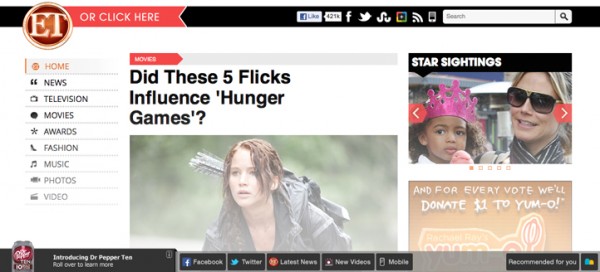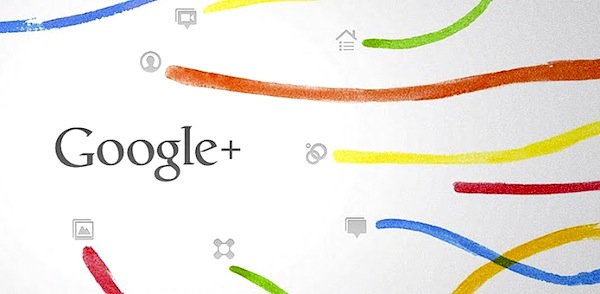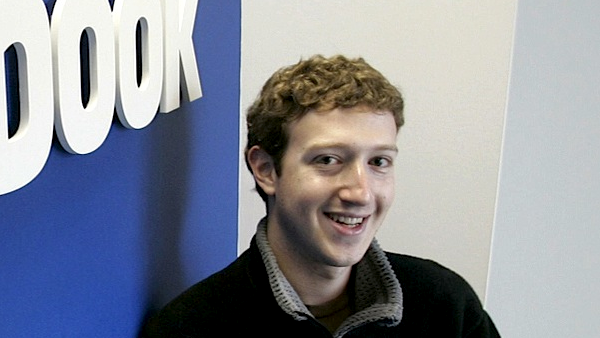
Hometalk relaunches: one part Pinterest, one part Angie's List
Hometalk, a year-old home improvement-themed social network, underwent a total redesign and re-launched on Thursday in hopes of making its content easier to access, and to keep its roughly 100,000 members stuck to the site longer.
The site is designed for homeowners to share pictures, videos, ideas, and conversations about general design and repair themes, including (but not limited to) topics like flooring, gardening, remodeling, painting, and more. This is done in very much the traditional social networking fashion, with user profiles building up networks of friends/followers, and sharing posts based heavily upon photographs. With this redesign, Hometalk has clearly taken note of Pinterest's success, and it includes a new feature called, simply, "Saving." With this feature, users can save any post or photo from other users on a "Virtual Clipboard," similar in both name and design to Pinterest's "Virtual Pinboard."

That Facebook account verification email in your inbox is a scam
If the scary email or app notification, and subsequent webpage, is to be believed, you have only a few days to verify your Facebook account or you’ll be out of luck. But don’t worry, a few days later you will magically get a few more days to verify, and so the scam goes.
A Twitter follower with the handle of @chasapple sent us a tip on an app message they received, here’s a screenshot of what happens if you clicked the link.

Social CRM is about thinking and feeling as customers do
New York City buzzed earlier this week when Salesforce announced it will acquire Buddy Media for $689 million. For those that have watched Mike Lazerow build the company from "a social media agency", as people jabbed in the early days, to a true social management platform, this outcome doesn’t come as a surprise. Buddy quickly grew as brands’ presence on social media shifted from experimental marketing budgets to a critical part of any chief marketing officer’s strategy. While Buddy originally (and wisely) hitched its wagon to Facebook as the network took off, they have since diversified outside the walls of Mark Zuckerberg’s castle and into other networks and platforms like Twitter, Google+ and more.
While this purchase may or may not come as a surprise to people, I have seen many folks scratching their heads and asking: "Why Salesforce?" Why not go, instead, with WPP (who’s an investor), Facebook, or another big agency holding company. The answer to this question lies in the difference of business fundamentals between agencies, Facebook, and Salesforce.

How will the LinkedIn hack affect you?
This morning when I logged into LinkedIn I was greeted with several front page references to the reported hacking of the site, and instructions for changing my password, which I did immediately. This is a good time to change all of your social media passwords, making sure you create a fresh password that is hard to guess and unique to each site. It is not unusual for malicious parties who grab a bunch of passwords from one site to try those same passwords on other sites.
Over 6.5 million account passwords showed up on a Russian forum in SHA-1 (hashed) format to prove that the hackers had indeed succeeded in penetrating LinkedIn. There is a good chance that if the hacker(s) achieved access to LinkedIn passwords then they also know the corresponding LinkedIn usernames, i.e. the matching email address of the account owner.

LinkedIn hack is much worse than you think
Today's LinkedIn hack, exposing more than 6 million encrypted passwords, is more serious than it might appear and reveals one of the biggest security shortcomings social networks pose: Linked or shared data. Literally linked-in accounts expose information from others -- then there is the sheer amount of personal data hackers can siphon.
LinkedIn hasn't confirmed the hack, but is investigating. Meanwhile the stolen data already is available on the Internet. Cyber-security expert Robert David Graham says he has confirmed "this hack is real". The stolen data was published as password hashes. He created a SHA-1 hash of his password and found it in the dumped data. "The password I use for LinkedIn is in that list", he explains. "I use that password nowhere else. Furthermore, it's long/complex enough that I'm confident nobody else uses the same password.

Meebo merger will create ad space for Google+
Do you use Meebo? Will you switch to Google+? Think hard before you answer, because Google is buying Meebo, the companies disclosed late today. The Meebo team, and presumably technology, will move to Google+, just as the social network's year anniversary approaches. (Whoa, has it been that long already?)
I remember Meebo, which launched in 2005, for its socially-oriented messaging client, which didn't stick to my online habits. More recently the company is better known for the Meebo Bar, which adorns tens of thousands of websites. I signed up two years ago and quickly gave it up. Meebo isn't alone producing this kind of website shtick, and I can only hope Google doesn't make Plus negative by adopting any similar menu bar motif.

Google+ for Android catches up with iPhone
Well, perhaps I should qualify that with "almost", depending on what matters more to you as a user. On Thursday, 15 days after releasing a major Google+ update for iPhone, the Android version arrived. Timing is interesting. According to NPD, considerably more Android users access Google+ from the browser than the app -- 16 percent to 10 percent overall reach, in March, respectively. My question for you quick downloaders, will that be true for you, or is the app now preferred? It's no idle question, because the web experience is now so vastly different from the app.
Like its counterpart, Google+ for Android offers bleeding-edge photos. Pretty much everything about Google+ bleeds the edge of the screen. The effect is immersive. You just want to scroll and scroll -- and you will since so much less content fills the screen now. But the Android version has better visual flow than its iOS counterpart. Stated differently: It's snappier, more alive. "We're building for a mobile future", Google senior veep Vic Gundotra says. That's apparent from just how different the app is from the web experience -- and how immersive.

Do you use Gmail and want to know more about your contacts? Try Rapportive
We all now communicate with people through so many channels that it is often difficult to put names to faces. You may know someone on Twitter and Facebook but when you receive an email from them you do not necessary make a connection between the two. This is where Rapportive can help, by providing you with extended information about the contacts you receive emails from in your Gmail inbox.
Rapportive is available as a browser extension for Chrome, Firefox and Safari and appears as a right-hand side panel whenever you look at individual emails. The extension pulls in information from social networks such as Twitter, LinkedIn and more to provide you with a more detailed profile of your contacts, and by connecting the service with your social networking accounts you can build up even more detailed information.

Oracle gains stake in social CRM with $300 million Vitrue buy
A day after competitor SAP acquired Ariba to bolster its cloud portfolio, Oracle announced a significant buy of its own, acquiring cloud-based social, marketing company Vitrue on Wednesday. Terms of the deal were not disclosed, although TechCrunch reports it was worth some $300 million.
Oracle's purchase of Vitrue gives the Redwood Shores, Calif. company a foothold in the social CRM segment, an initiative Gartner says companies will spend some $2.1 billion on this year alone. With the rise of social networks, companies need methods to quantify the results of their social marketing. Virtue's platform allows customers to "centrally create, publish, moderate, manage, measure and report on their social marketing campaigns and activities", Oracle says.

Are Facebook bankers backers or backstabbers?
What's the measure of Facebook's IPO? MBAOnline sent us a couple of infographics explaining just that (see them below the fold). But I must qualify that they don't take into account downward trends and some nasty behind-the-scenes backstabbing. Late yesterday, writing for Reuters, Alistair Barr reports that ahead of Facebook's Friday IPO, lead underwriter Morgan Stanley reduced revenue forecasts during the roadshow promoting the public offering. JPMorgan Chase and Goldman Sachs did similarly.
Fallen dot-com stock analyst and risen tech news publisher Henry Blodget adds perspective. "This by itself is highly unusual (I've never seen it during 20 years in and around the tech IPO business)", he observes. "But, just as important, news of the estimate cut was passed on only to a handful of big investor clients, not everyone else who was considering an investment in Facebook". Uh-oh, selective disclosure violates SEC rules.

Google+ will continue to grow whether people actually use it or not
With Facebook now public and sitting on a huge pile of cash, let’s turn the conversation to the social network’s most pressing competitor, Google. Google and Google+ don’t appear to present much of a threat to Facebook, but the game board was reset on Friday and tactics at both companies will change accordingly. Now Facebook has to find a way to grow revenue and users and will increasingly bump up against Google’s huge advantages in search and apps. For Facebook to achieve its goals, the company will have to enter both spaces with gusto.
Google has learned how to leverage its strengths and suddenly one of those strengths is Facebook’s success. Now that Facebook is a $100 billion company, it doesn’t hurt Google to be number two in that space. Who else is? Pinterest? Instagram? Twitter? None of those services offer a full-fledged social network for those who do want a Facebook alternative, and some people will.

Mark Zuckerberg isn't embarrassed by Facebook's IPO
So Facebook is now a public company but with the shares only one business day old the news is already bad: Facebook shares didn’t pull a Google or a Yahoo or a Microsoft or even a TheGlobe.com and soar out of sight on IPO day. They ended right where they started pretty much after the day traders took their easy profits. And while Wall Street sees this performance as a dud, Facebook itself sees it as a masterful piece of financial engineering.
If you are an investment banker -- and let me re-emphasize that, if you are an investment banker -- you want IPO shares to go up on their first day, rising in price by at least 10 percent though no more than 20 percent. This shows the IPO is hot, the company is booming, yet the offering wasn’t so underpriced that the founders feel cheated. Such IPOs make investors feel happy and happy investors buy and sell more shares and participate in future IPOs.

Microsoft Socl opens to all, the social network where search queries = status updates
Microsoft on Monday opened its experimental social search service called So.cl, which lets users socially broadcast their search queries and attached results. Socl is the product of Microsoft's Fuse labs, and has been open to limited user groups at the University of Washington, Syracuse University, and New York University, for the last five months.
Unlike the recent revamp of Bing, which integrates a user's social graph into their search base, Socl is something entirely different. The new service combines the "social broadcasting" aspect of Twitter and applies it to search queries and research.

Is Google+ gaining against Facebook on Android?
Ahead of Facebook's Friday IPO, NPD released usage data for Android smartphones. Unsurprisingly, user reach is quite high. In looking over the data, I honed in on Google+, which makes a surprising showing for a social network not even a year old. But behind early adoption is a lesson for Google and Android developers about the app vs browser.
First, the data NPD highlights: Nearly 75 percent of Android users accessed Facebook, via app or browser, in March. But, separately for both, reach declined from February to March. However, the overall trend for the app is up. By comparison, Twitter: 23 percent web, 16 percent app. Google+ reach is 16 percent web, with the app swinging between 10 percent and 15 percent. For all three social networks, web reach exceeds the app.

Will you make Mark Zuckerberg rich?
Stated differently: Will you invest in Facebook? The third-largest IPO in history begins today. Facebook set a price of $38 share, which values the social network at about $104 billion. Twenty-eight year-old cofounder and CEO Mark Zuckerberg will be super wealthy, if Facebook gets its price (and likely much more) as I post ahead of the market's open.
Facebook makes available 421.2 million shares. Zuckerberg maintains voting majority, 503.6 million, which at $38 is $19.1 billion, making him the 29th richest person -- wealthier than Google's cofounders.
